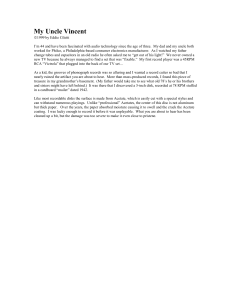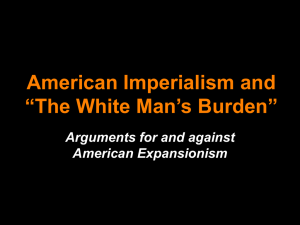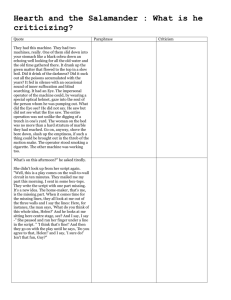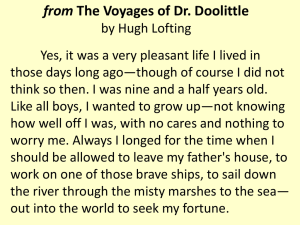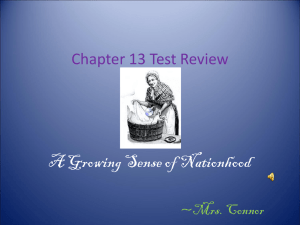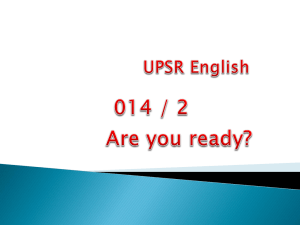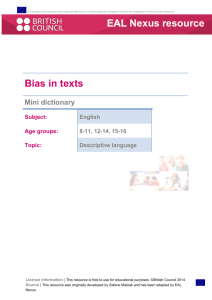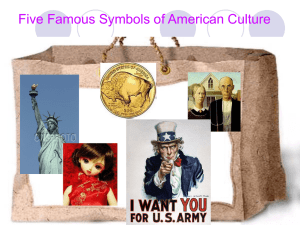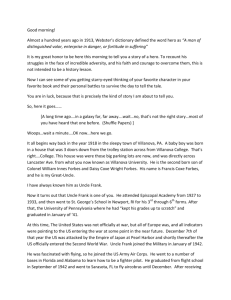Astray - Going Bananas conference
advertisement
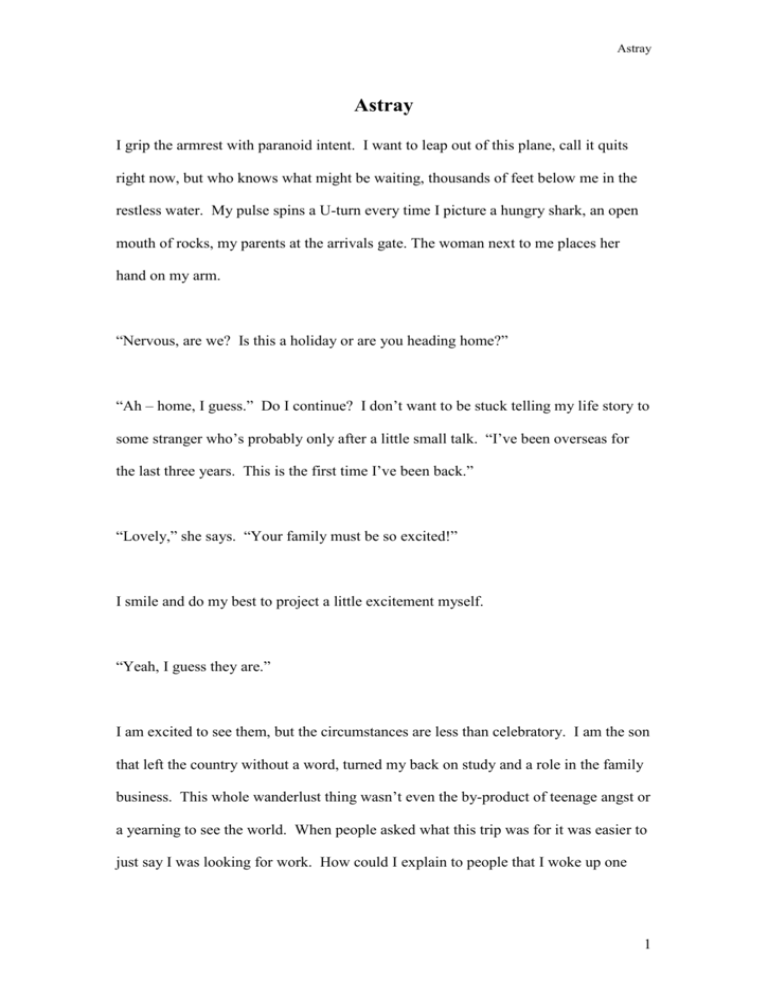
Astray Astray I grip the armrest with paranoid intent. I want to leap out of this plane, call it quits right now, but who knows what might be waiting, thousands of feet below me in the restless water. My pulse spins a U-turn every time I picture a hungry shark, an open mouth of rocks, my parents at the arrivals gate. The woman next to me places her hand on my arm. “Nervous, are we? Is this a holiday or are you heading home?” “Ah – home, I guess.” Do I continue? I don’t want to be stuck telling my life story to some stranger who’s probably only after a little small talk. “I’ve been overseas for the last three years. This is the first time I’ve been back.” “Lovely,” she says. “Your family must be so excited!” I smile and do my best to project a little excitement myself. “Yeah, I guess they are.” I am excited to see them, but the circumstances are less than celebratory. I am the son that left the country without a word, turned my back on study and a role in the family business. This whole wanderlust thing wasn’t even the by-product of teenage angst or a yearning to see the world. When people asked what this trip was for it was easier to just say I was looking for work. How could I explain to people that I woke up one 1 Astray day, fed up with the uncertainty that a sheltered upbringing had bred in my mind and simply decided I just had to leave? Wellington couldn’t soothe the pressure. I was restless and unhinged, desperate to be somewhere where no one knew my name. People told me I should visit China to get a taste of the motherland. It sounded great, though I never imagined that my first trip there would be a solo journey. I would start somewhere a little less foreign first. “Actually, I’m heading back for a funeral.” “Oh, that’s awful,” she says, genuinely concerned. “Is it family?” “Sort of. We called him Uncle Frank, so yeah, pretty much family.” “That’s terrible. What a horrible reason to bring you home.” There are hundreds of reasons for returning home, but I can never tell if they’re the right or wrong reasons. *** At the airport Mum refuses to let go of me. I stumbled through the arrivals gate and there she was pushing through the crowd to get to me. She’s crying, as I expected, but I can’t tell if it’s for me or Uncle Frank. 2 Astray “Your Uncle Frank,” she stammers. “He brought your Dad out, and now he’s brought you home to us.” Uncle Frank isn’t a real uncle, just one in a long line of Chinese people that you’re told to address as Uncle or Aunty. They’re the borrowed relatives, the people our parents grew up with, the ones that take us to basketball practice or cook us impossibly large meals when we stay for dinner. Uncle Frank was a good friend of one of my Dad’s cousins. When Dad was trying to immigrate to New Zealand it was Uncle Frank that helped him with all the necessary paperwork and letters of recommendation. Though he never confirmed it, I’m pretty sure he also helped out with a loan for my parents’ first house. It was Uncle Frank that loaned me the money for my trip. When I asked him, promised to pay back every cent with interest, all he did was write out a cheque. He didn’t ask questions, he didn’t lecture. “I know you’re a good boy,” he said, “and I know you’re not asking for this because of some sort of trouble. I know you need this.” I could suddenly hear myself asking for the money to runaway and it made me feel sick. I hadn’t been abused as a kid, I didn’t hang with the drug crowd, yet here I was, asking – no, begging – for money to flee the country as if my life depended on it. Within two weeks of leaving home I was in Melbourne, sending a postcard to my, no doubt, shocked parents. In hindsight it was nothing but a mere courtesy, the first 3 Astray thing I did in every new city I moved on to. I’d send birthday cards and Christmas presents when required, but even I could tell they were empty shots at maintaining some sort of distanced normalcy in our fractured situation. I could’ve picked up a phone and call or send them an email filled with funny anecdotes and “miss you all heaps” messages, but I was scared. Scared that hearing the disappointment or anger in their voices would fill me with guilt and send me packing on the first flight home. I couldn’t afford to feel guilty, and if this made me selfish then so be it. My parents never found out that Uncle Frank funded my disappearance. They both held him in such high esteem I’m sure if they knew they would’ve have accepted it with glowing hearts, his paramount judgment more than enough for them. *** On the way to the funeral, Mum starts talking about Uncle Frank. “He asked about you, just before he died. He knew that you were a good boy and would come home soon.” I stare out the window at familiar streets and houses. Everything I wanted to abandon so desperately is now strangely comforting. “He started talking about how since he arrived in New Zealand as a boy he never left the country once, not even to go back to China. He always felt at home here, never 4 Astray felt the need to leave, but he knew that some people need to spread their wings, to see the rest of the world so they know where their place is at home.” She turns around to face me. The tone in her voice is lighter and she’s even halfsmiling. “Did you visit China? I could never keep up with all the postcards you sent us.” “Yeah, I spent a few weeks in Guangzhou.” “Oh good,” she says. “You do look a little more Chinese.” *** Kelly, Uncle Frank’s daughter, sits down next to me on the park bench. She’s closer in age to my eldest brother but she and I always had a strong rapport. From the age of five she knew exactly what she wanted in life – to be a model Chinese New Zealander, a girl on the cusp of silk and mah jong. “How’s our little globetrotter?” she says, running the service program through her fingers, Uncle Frank’s striking eyes staring out at us in photocopy monotone. “Shattered.” I take a cigarette out of my jacket pocket and immediately she starts to laugh. 5 Astray “Running away, then smoking. What’s next? Prostitution?” “Haha. I only do it when I’m nervous, which has been every second of the last two days.” “It’s going to kill you.” “The smoking or my family?” Cough. “I know.” Her sister walks past and asks if she needs a lift to the cemetery. Kelly’s already got a lift with her fiancé, a pakeha boy she met at law school, so she declines the offer. “It’s pretty weird, you dating a white boy,” I say. “What happened to your perfect little Chinese family? Keep the bloodline! Keep the pride!” She swats me playfully on the head. There is a brief moment of silence, in which I realise I’ve just teased a girl on the day of her father’s funeral. Nice one. “I know we all make grand plans in life,” she says, “but things change.” She laughs, turning the program face down so her Dad can’t see or hear. “What did your Dad think of him?” “Actually they got along really well. Before I’d even met Jeff, Dad gave us this little speech, said he knew times had changed and our generation were a lot more 6 Astray conditioned from growing up in New Zealand and that it would be OK if we dated a gwai lo.” “That’s pretty cool of him.” “Yeah, but then I felt that he wanted me to date a white boy, like he was testing me or something.” We watch as everyone starts piling into cars. There is mass confusion over directions to the cemetery and who’s driving. I see Mum beckoning me. She has this excitement on her face, as if it’s been announced that the first person there wins a prize or something. Kelly pulls me up off the bench. “Come on. Let’s go.” I stub my cigarette out and toss it into a nearby bin. The wind has picked up and my bones suddenly ache with a strange familiarity; a sense that there is light and dark in every release and doors have been left open for us, only some of us that choose to step through can never know where we might end up. 7
